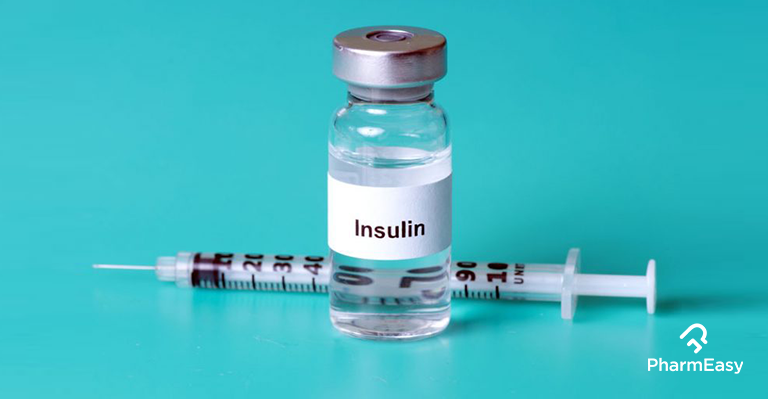5 Important Things To Remember If You Take Insulin
By Dhwani Jerajani +2 more

Download PharmEasy App




Register to Avail the Offer
Send OTPBy continuing, you agree with our Privacy Policy and Terms and Conditions
By Dhwani Jerajani +2 more
While taking insulin might not be an option for many, ensuring you are armed with all the finer details that will prevent you from landing in unnecessary complications is a choice you make. Here are the top 5 things you must not forget if you take it regularly:

The dose varies for each patient. A combination of short or rapid-acting and intermediate or long-acting insulin typically is used as a part of treatment. Multiple daily shots of it or continuous subcutaneous infusions using a pump that closely mimics the secretion of insulin by the pancreas are also used in the management of diabetes. Talk to your doctor about what works best for you. For managing critically ill patients, insulin sliding scales wherein the doses of insulin are determined by the glucose level are used. After taking a dose of it, the patient should have the meal within 30 minutes. It is commonly administered via subcutaneous injection on the abdominal wall, thigh, buttocks, or upper arm and some insulins can be administered intravenously too. The site of injection must be rotated within the same region. The patient may need increasing doses if he/she develops resistance to it.
The main important thing is put in 4 important words are right insulin, right dose, right time, right device and right way. Too little insulin can cause your blood sugar to get too high. Similarly, too much insulin can cause your blood sugar to drop too low. If you use more than one type of insulin, always check the label on your vial or pen before injecting yourself.
Dr. M.G. Kartheeka, MBBS, MD
Most patients are scared of taking it because of the pain inflicted by the needle. However, the new-age insulin pens are so advanced that using them is nearly a child’s play. These pens have tiny needles that are almost painless, and some types of them use injectors to push insulin through the skin without needles.
Hypoglycemia is the most frequent side effect. Occasionally, blurry vision is experienced by patients when the treatment is started. Dermatologic reactions to insulin can result in lipohypertrophy or lipoatrophy. Weight gain in the form of oedema is seen at the start of treatment; this is due to immediate restoration of glucose control which was poor previously. Hypoglycemia caused due to insulin can affect the kidneys by reducing the renal plasma flow, glomerular filtration rate, and marked the rise in urinary albumin excretion rate. Ensure you keep a sachet of sugar or some sweet candies always with you when on the move to suck on if you experience hypoglycemia.
If you have type 1 diabetes, pregnancy will affect your insulin treatment plan. During the months of pregnancy, your body’s need for insulin will go up. This is especially true during the last three months of pregnancy, frequent testing of blood glucose is recommended.
Dr. Ashish Bajaj – M.B.B.S, M.D.
Also Read: Karela Jamun Juice Benefits: A Research-Based Guide to its Health Wonders
Always store your insulin in a refrigerator to keep it cool, but never allow it to freeze. Once opened, do not keep it for more than 28 days. Like any other medicines, do not use it past the expiry date. Be aware of how your insulin should look like, i.e., colour and fluidity, and always check before injecting it.
Also Read: Insulin and Weight Gain: Tips on Managing
Always consult your physician about this scenario because the plan of action will depend on the types of insulin being administered. If you forget to take your long-acting insulin and realize it within 2 hours, then it is okay to inject your usual dose. In some cases, you may have to take short-acting insulin to lower your blood glucose levels if they are high when you notice that you have missed a dose.
Read More: Insulin Resistance: Symptoms, Causes & Diagnosis
Disclaimer: The information included at this site is for educational purposes only and is not intended to be a substitute for medical treatment by a healthcare professional. Because of unique individual needs, the reader should consult their physician to determine the appropriateness of the information for the reader’s situation.
Comments